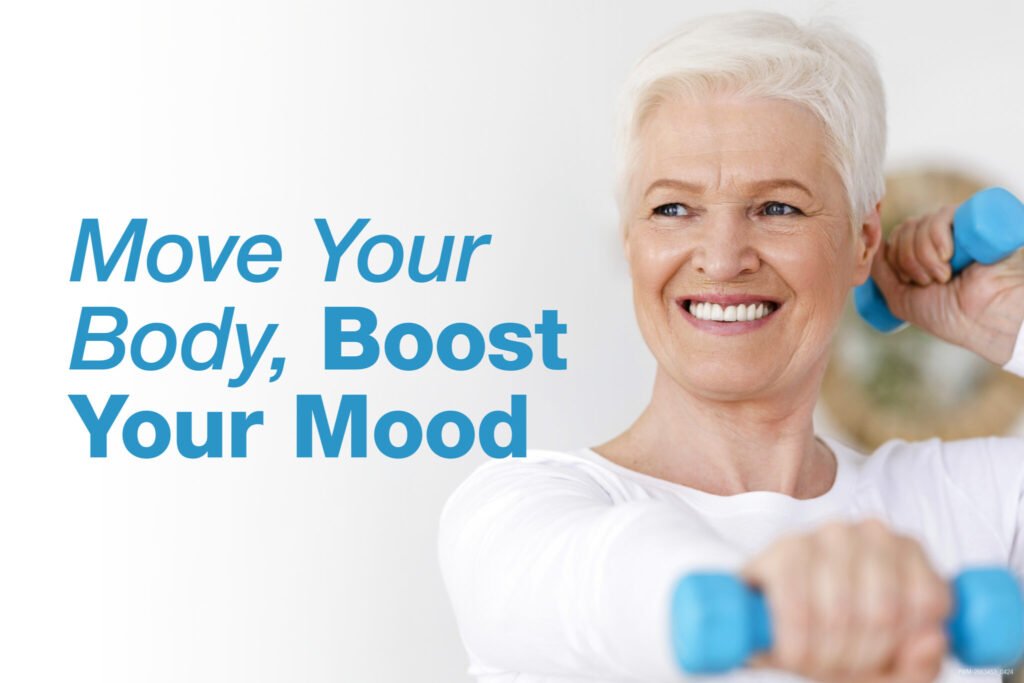
How Physical Activity Boosts Your Mood
The Transformative Power of Exercise on Mental Health: A Comprehensive Guide
Introduction
You don’t need a study to know this: after a good workout, your brain just feels better. That’s not an accident — it’s chemical.
Every time you move, your body releases endorphins, serotonin, and dopamine — the same brain chemicals targeted by antidepressants. In fact, regular exercise has been shown to work just as well as therapy or medication for many people dealing with mild to moderate depression.
This isn’t just about “feeling good.” It’s about building real resilience — mentally and emotionally — one workout at a time.
Exercise as a Mental Health Intervention
How Physical Activity Boosts Your Mood
Did you know that consistent exercise can help ease feelings of anxiety and depression? In fact, for many people, it works just as well as medication or cognitive behavioral therapy (CBT). What makes this possible? Well, when we move our bodies, we release endorphins and neurotransmitters that lift our spirits and give us that feel-good sensation.
Actionable Insight: Aim for at least 30 minutes of movement most days of the week—whether that’s a brisk walk, a fun dance class, or a workout in your local park. The real key is to make it a habit, so choose something you love to keep coming back for more!
Why Exercise Makes Such a Difference
Here’s why getting your heart rate up is so beneficial: exercise boosts blood flow to your brain, sharpening your focus and mental clarity. Plus, it helps regulate the HPA (hypothalamic-pituitary-adrenal) axis, a system that manages our body’s stress response. When you reduce your stress levels, you create a healthier emotional balance, making it easier to cope with daily challenges.
Supporting Evidence: A 2022 study in the Journal of Affective Disorders revealed that people who engaged in aerobic exercise saw significant decreases in depressive symptoms compared to those who didn’t work out.
Types of Exercise for Mental Wellbeing
A World of Physical Activity Awaits
The great thing about exercise? There’s something for everyone! You don’t have to hit the gym if that’s not your style. Think about joyful movements like gardening, hiking, or even taking your dog for a stroll, all of which can greatly benefit your mental health. Here’s a quick look at some popular options:
– Aerobic Exercises: Activities like running, cycling, or swimming work wonders for your mood. Try to get in at least 150 minutes of moderate aerobic activity weekly—experts from the U.S. Department of Health recommend it!
– Strength Training: Incorporating weight or resistance work into your routine helps build muscle and enhances your physical health, which positively impacts your mental state, too.
– Mind-Body Exercises: Practices like yoga and tai chi are fantastic. They merge movement with breath control and mindfulness, making them effective stress relievers that improve your overall mental health.
Actionable Insight: Don’t be afraid to explore different forms of exercise. Whether it’s joining a local sports team, signing up for a class, or trying out online workout videos, keep things fresh and fun!
Practical Activities to Boost Mental Health
Creating Your Routine
We all know that making a change in our routines isn’t always easy, but trust me—the benefits of regular physical activity are worth the effort. Here’s how to weave exercise into your daily life:
1. Set Realistic Goals: Start with small, achievable targets, like committing to a 30-minute walk three times a week.
2. Make It a Group Activity: Grab a friend or family member to join you! Exercising together can add a fun twist and extra motivation.
3. Track Your Progress: Consider keeping a journal or using fitness apps to log your workouts. This could inspire you to stay on track.
Crafting Enjoyable Experiences
Exercise doesn’t have to feel like a chore. Making it enjoyable is essential for keeping engaged over the long haul. Here are some ideas:
– Discover new walking trails or parks in your area.
– Give group classes at local community centers a shot—they’re a great way to stay motivated!
– Get involved in virtual fitness challenges or competitions with friends for some entertaining rivalry.
Supporting Evidence: Research shows that group exercise programs can boost commitment among individuals facing mental health challenges, highlighting the importance of social interaction in maintaining a routine.
How to Apply This Information
Bringing exercise into mental health treatment isn’t just about telling people to work out—it’s about reshaping how we think about mental health care. Here’s your action plan:
1. Chat with a Mental Health Professional: Talk about how exercise might fit into your treatment plan. Ask about programs that include physical activity.
2. Start Small: If you’re new to exercising, kick things off with short sessions before ramping up the intensity and length.
3. Practice Mindfulness: Focus on your breathing and the feelings in your body during workouts to enhance both your physical and mental health benefits.
4. Reassess Regularly: As you progress, take time to revisit your goals. Adjust your routines as your interests and fitness levels change.
Conclusion
It’s clear: exercise is a fantastic ally when it comes to managing mental health. By recognizing the vital link between physical activity and emotional well-being, we can encourage both individuals and healthcare providers to prioritize movement in their mental health strategies. With the right support and a focus on enjoyable activities, we can all take critical steps toward feeling better mentally.
I’d love to hear from you! How has exercise influenced your mental health? Share your experiences in the comments below—let’s chat! Remember, perfection isn’t the goal; just find what feels good for you and keep moving. Sometimes, the path to better mental health begins with just one small step.
Hashtags: #exercise #mental #health #physical #activity #about #like #work #making #here #when #well #just #into #good
